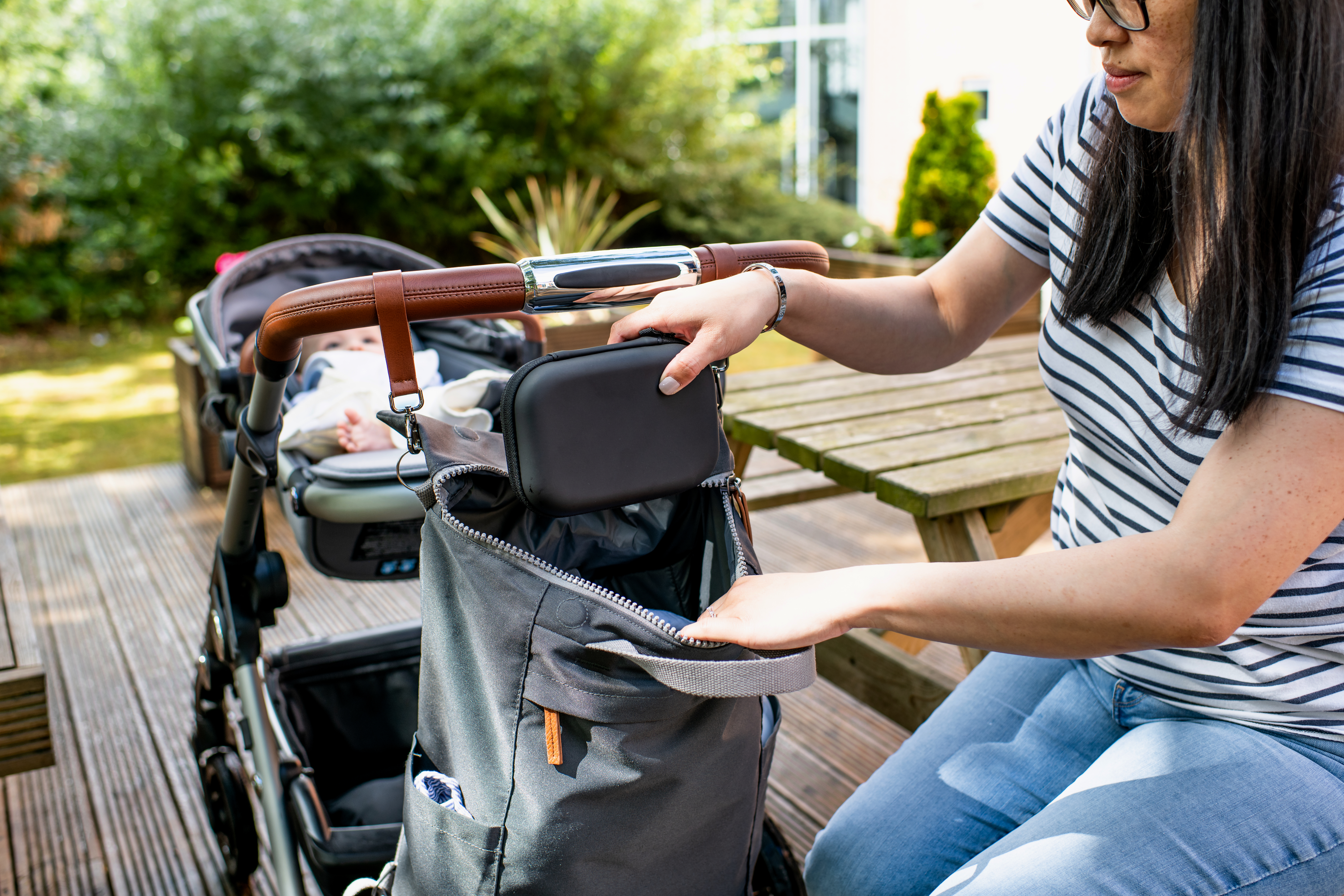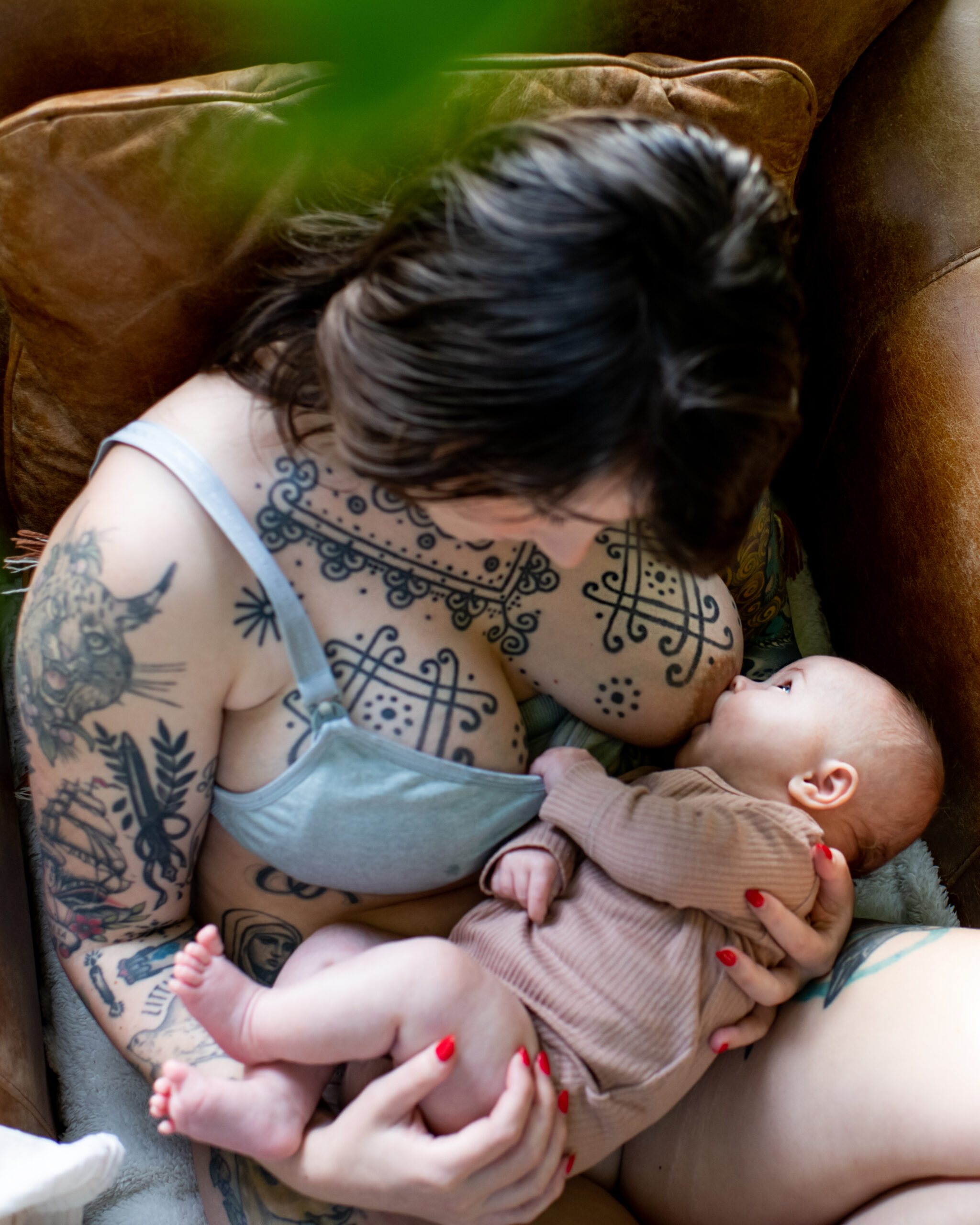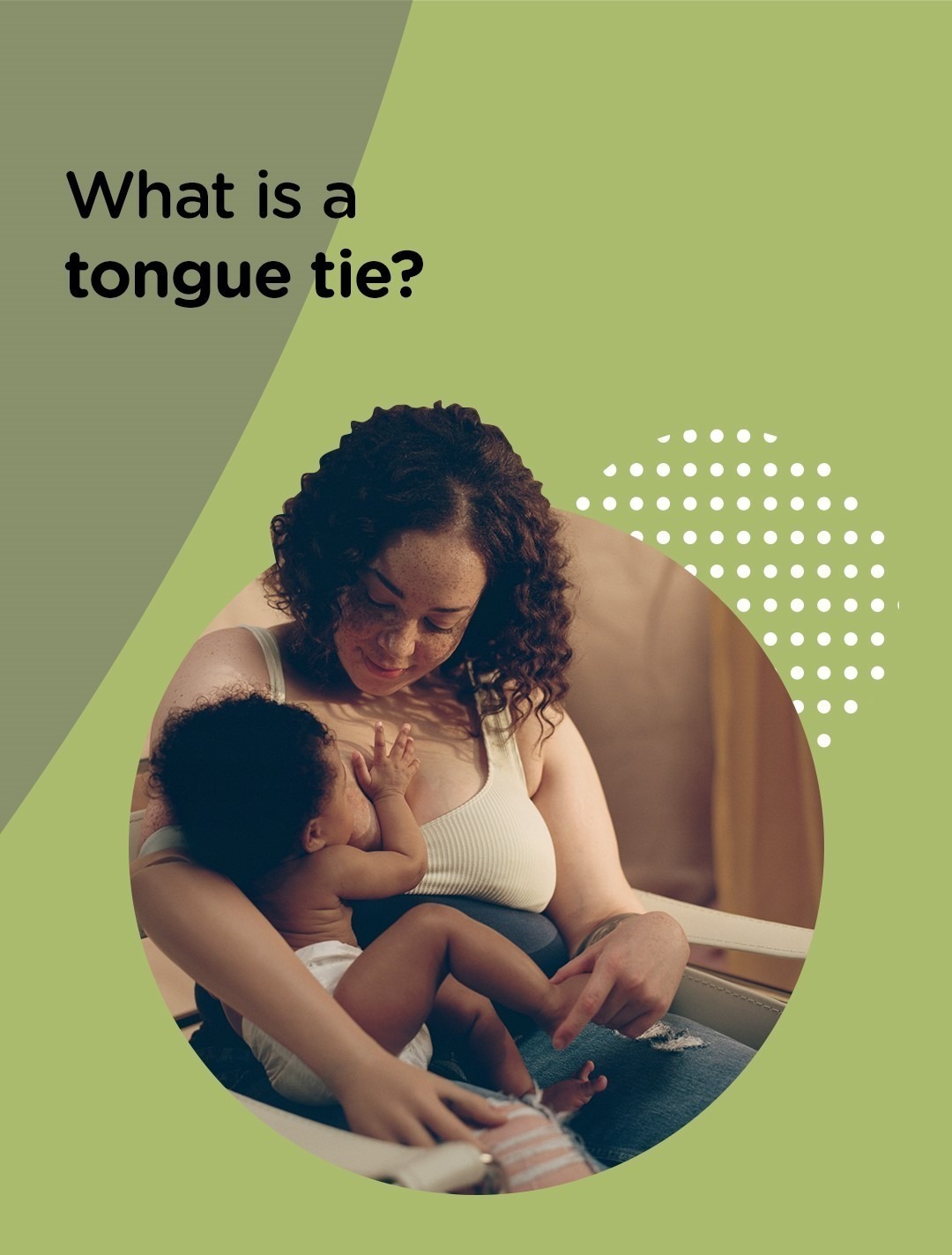The truth is, welcoming a baby into the world is a huge life event and can bring with it a whole range of different feelings – some good, some difficult to manage.
Postnatal depression (PND) affects one in 10 women within a year of giving birth (this figure is higher for mums with multiple babies). It’s important that parents are aware of the signs and symptoms, and that they know when and how to seek help if it’s needed.
In this guide, we’ll cover what postnatal depression is, what symptoms you should look out for, and how it can be treated.
What is postnatal depression?
Postnatal depression (also referred to as postpartum depression) is a common form of depression that occurs after a person has had a baby. It’s different from the post-birth ‘baby blues’ that people talk about.
It can develop suddenly, or gradually over time, which can make it tricky to identify and can be mild to very severe at different times.
- Mild: A small number of symptoms that have a limited effect on daily life
- Moderate: More symptoms that can make daily life much more difficult than usual
- Severe: Many symptoms that can make daily life extremely difficult
Many new parents are so focused on caring for their newborn that they forget to check in with themselves, so understanding postnatal depression is an important step in being able to take the best care of yourself and your baby.
How long does postnatal depression last?
Because everyone’s situation is unique, there’s no definitive timeline for how long postnatal depression lasts.
Postnatal depression is different from the ‘baby blues’ in that it can last for an extended period if not treated. In the minority of cases, it can develop into a more serious issue that requires a long-term treatment plan.
Symptoms of postnatal depression
Unfortunately, postnatal depression often goes undiagnosed because people either don’t recognise that they have it, or they overlook their symptoms because they’re worried about judgement from others.
It’s important to know that PND is common, and it’s ok to talk about how you’re feeling. Being aware of and spreading knowledge about the symptoms of postnatal depression is an important step in reducing the stigma around it and helping more parents get the support they deserve.
Signs that you or someone you know might be depressed that people should be mindful of include:
- A feeling of sadness or a low mood that doesn’t go away.
- Lack of interest or enjoyment in things that once brought joy.
- Avoiding contact with others and withdrawing from social situations.
- Trouble sleeping in the evening.
- Feeling tired or lacking energy during the day.
- Finding it difficult to take care of the baby or yourself.
- Problems with decision-making and concentration.
- Under or overeating.
- Thinking that you’re a bad parent.
- Feeling overwhelmed, anxious, or guilty.
- Lacking confidence or feeling low in self-esteem.
- Having concerning or intrusive thoughts about things like hurting the baby or yourself.
If you have thoughts of suicide or harming yourself or your baby it’ important that you seek help right away. Ask your GP to arrange for you to see a mental health professional that day or go to your local Emergency Department.
What causes postnatal depression?
There’s no one clear cause for postnatal depression, but there are some factors that can make it more likely that you’ll experience postnatal depression. These include:
- Having a family history of mental health problems.
- Dealing with anxiety or depression while pregnant or if you were already managing mental health issues before becoming a parent. If you have a history of depression or mental health problems and are thinking about getting pregnant it’s a good idea to speak to your GP, midwife so that they can support you and offer you appropriate, safe treatment.
- Experiencing a stressful event after the baby arrives such as moving house, a relationship breakdown, or the death of a loved one.
- Having twins. Mums of multiple births can be more at risk.
- Lack of support from a partner, close family, or friends.
- Experiencing domestic violence or trauma.
The truth is, postnatal depression can affect anyone. Having a baby is a life-changing event that can sometimes trigger depression, even if none of the above applies to you.
How to get support for postnatal depression
It can be a really difficult time, but it’s important to remember that there’s always support available if you or someone you know is dealing with postnatal depression.
GPs, midwives and health care providers can be a great first point of contact when it comes to getting help.
How is postnatal depression treated?
Although experiencing postnatal depression can be isolating and distressing, there are numerous treatments available, and with the right support, people can and do recover.
Which treatment is right for you can depend on several factors and your healthcare providers can help guide your recovery journey.
Talking therapy
Your GP, midwife or health care professional may refer you for a course of talking therapy that can help you to reframe your thinking and change your thoughts to help improve your other symptoms.
It may be recommended that you take guided self-help sessions with a therapist.
You may also be signposted to a local postnatal support group where you can talk about how you feel with other parents who’re going through the same thing in a safe, non-judgmental environment.
Medication
You may be offered antidepressants. There are several types and your doctor will be able to advise on which one they think is best for you, particularly if you’re breastfeeding.
Self-help
You should always speak to a healthcare provider if you’re feeling depressed, but sometimes self-help techniques can work well alongside other treatment methods.
Things like talking to your family and friends, asking for more help with your baby, making time for yourself to do the things you enjoy, eating healthily, and exercising regularly can help boost your mood and lighten the load of new parenthood.
Postnatal depression FAQs
How do I know if I have Postnatal Depression?
You should speak to your GP, midwife, or health care provider as soon as possible if you think you may be depressed. Signs of depression include:
- Feeling sad and low for an extended period.
- Feeling unable to enjoy things you used to.
- Feeling low in energy or tired all the time.
- Finding it difficult to sleep at night.
- Struggling to care for yourself and your baby.
- Avoiding contact with others.
- Struggling to make decisions and concentrate.
- Having frightening thoughts.
- Having low self-esteem.
- Appetite changes.
Can men get Postnatal Depression?
Yes, non-birth parents also go through a life-changing period when their baby arrives and can also experience mental health problems around this time. Studies show that around 50% of men who have partners diagnosed with postpartum depression go on to develop depression themselves.
Postnatal depression is thought to affect one in 10 men, although this figure may be higher for fathers of multiples. Sleep deprivation, changes in routine, financial pressures, changes in relationship dynamics, and their partner dealing with depression can all play a part in causing this.
Some men find it harder to seek support, but it’s so important for dads and co-parents to tell their GP if they’re feeling anxious or depressed.
How is Postnatal Depression different from the ‘Baby Blues’?
It’s very common to feel a bit down, tearful, or anxious in the first week after your baby is born, and these feelings are often referred to as the ‘baby blues’.
The ‘baby blues’ are caused when your hormone levels, which are at an all-time high during pregnancy, suddenly fall. This happens around three to 10 days after birth and can make you feel anxious and tearful.
Unlike postnatal depression the ‘baby blues’ often don’t last for more than two weeks after giving birth, so if you continue to feel down, tearful, or anxious beyond this time, you could have PND.
You should always reach out and speak to someone however you’re feeling whether you think it’s ‘just the baby blues’ or something more.
How can I help someone with Postnatal Depression?
If you’re concerned that someone you love is suffering from PND, you should encourage them to speak to their GP or health care provider as soon as possible.
Remember to listen to them, be patient, and make sure they’re able to rest. Helping to care for their baby and doing chores around the house will help them feel supported if they are struggling.
I don’t think I have PND but I don’t feel right. What should I do?
It’s important to remember that you’re the expert on your own body and mind, so trust your instincts and reach out for support from a GP, midwife, or health care provider if you feel that something isn’t quite right.
PND is the most well-known postpartum mental health condition, but there are other maternal mental health conditions that can have different symptoms, e.g. postpartum psychosis, OCD, PTSD, and other anxiety disorders.


